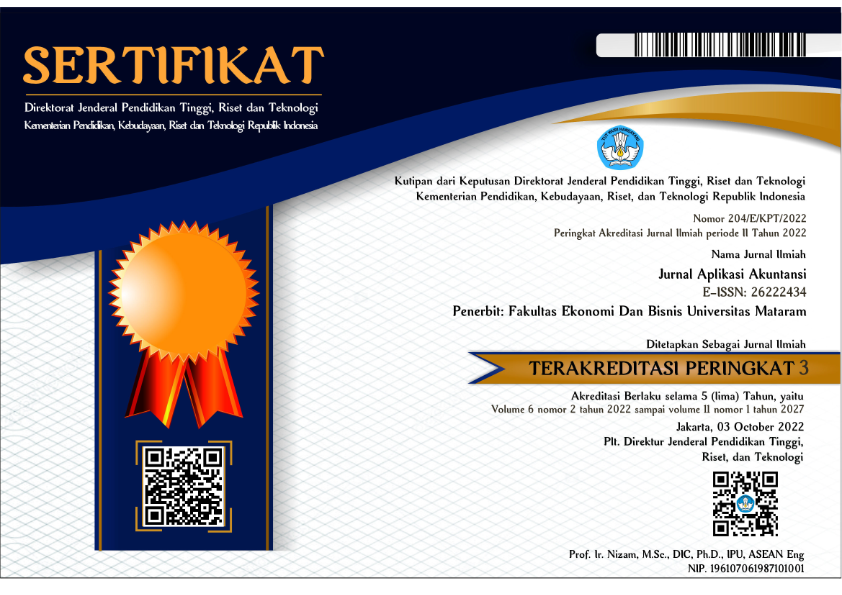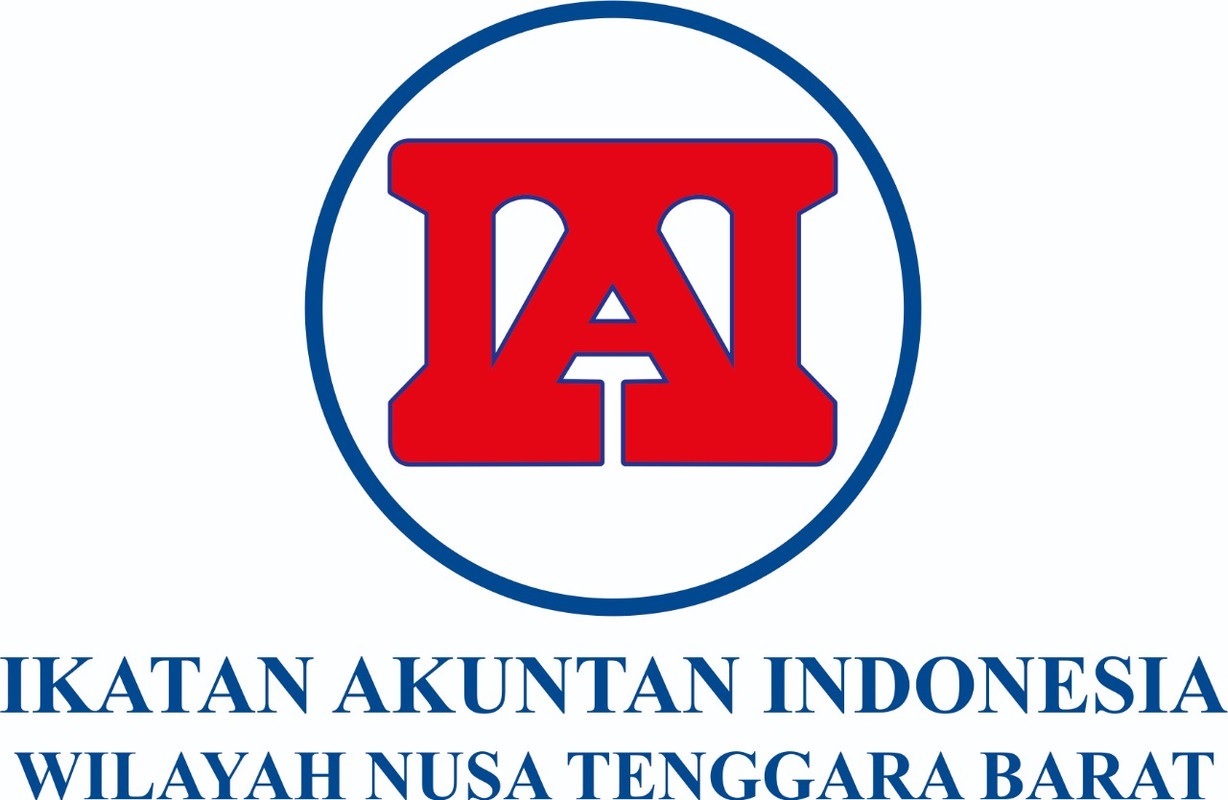STANDAR AKUNTANSI KEUANGAN DAN PRAKTIK MANAJEMEN LABA DI INDONESIA
DOI:
https://doi.org/10.29303/jaa.v4i2.77Keywords:
Industrial Revolution, Convergence, Managerial Discretion, Earnings ManagementAbstract
Financial reporting in Indonesia is based on accrual-based Financial Accounting Standards (SAK), where according to Watts and Zimmerman (1986) accounting recorded on an accrual basis is subject to managerial discretion, due to the flexibility given by the General Accepting Accounting Principle (GAAP), which gives managers encouragement to modify financial statements (earnings management). This study aims to map earnings management practices in Indonesia after convergent Financial Accounting Standards on IFRS. The data analysis technique used in this study is the two different test average with the t-test (independent sample t-test). The results of data analysis found that there were no significant differences. This is caused by the same earnings management pattern. The highest level of earnings management implementation exists in countries with weaker legal institutions and higher levels of pre-transition earnings management, which are partially and fully associated with market value and returns, which means that earnings management practices continue to be carried out because market demands for high rates of return on investment.
References
Anshori, Muslich dan Sri Iswati. 2009. Buku Ajar Metodologi Penelitian Kuantitatif. Surabaya: Pusat Penerbitan dan Percetakan UNAIR (AUP).
Capkun, Vedran, Anne Cazavan_Jeny, Thomas Jeanjean, dan Lawrence A. Weiss. 2008. Earnings Management and Value Relevamce during the Mandatory Transition from Local GAAPs to IFRS in Europe. SSRN. 2011.
Ikatan Akuntan Indonesia. 2007. Standar Akuntansi Keuangan. Jakarta: Salemba Empat.
Jensen, M.C., and W. H. Meckling. 1976. Theory of The Firm: Manajerial Behaviour, Agency Cost, and Ownership Structure. Journal of Financial and Economics, 3, 305-360.
Scott, William R. 2009. Financial Accounting Theory (5th Edition). Pearson Education. Toronto, Canada. 2009.
Shleifer, A. and R.W. Vishny. 1997. A Survey of Corporate Governance. Journal of Finance, Vol.52. No.2. June, p.737-783.
Sugiyono. 2013. Metode Penelitian Kombinasi. Bandung: Penerbit Alfabeta.
Sulistyanto, Sri. 2008. Manajemen Laba: Teori dan Model Empiris. Jakarta: PT. Gramedia Widiasarana Indonesia.
Watts, R., and J.L. Zimmerman. 1990. Positive Accounting Theory. The Accounting Review. Vol 65, No. 1.
Whelan, Catherine J., dan Raymond P. McNamara. 2004. The Impact of Earnings Management on the Value-Relevance of Earnings and Book Value: A Comparison of Short-term and Long-term Discretionary Accruals. JEL Classifications: G12, G14, and M41.









